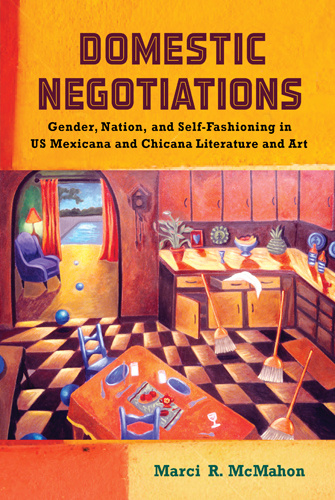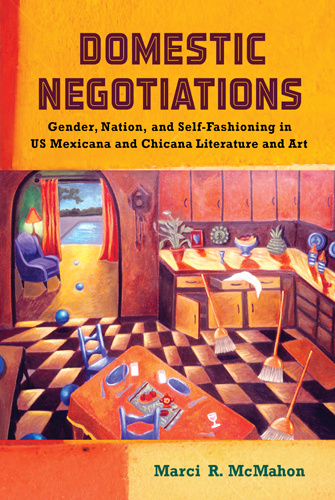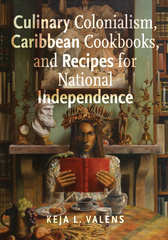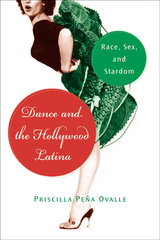
260 pages, 6 x 9
12 illustrations
Paperback
Release Date:01 Jul 2013
ISBN:9780813560946
Hardcover
Release Date:01 Jul 2013
ISBN:9780813560953
Domestic Negotiations
Gender, Nation, and Self-Fashioning in US Mexicana and Chicana Literature and Art
Rutgers University Press
Winner of the 2014 NACCS Tejas Non-Fiction Book Award
This interdisciplinary study explores how US Mexicana and Chicana authors and artists across different historical periods and regions use domestic space to actively claim their own histories. Through “negotiation”—a concept that accounts for artistic practices outside the duality of resistance/accommodation—and “self-fashioning,” Marci R. McMahon demonstrates how the very sites of domesticity are used to engage the many political and recurring debates about race, gender, and immigration affecting Mexicanas and Chicanas from the early twentieth century to today.
Domestic Negotiations covers a range of archival sources and cultural productions, including the self-fashioning of the “chili queens” of San Antonio, Texas, Jovita González’s romance novel Caballero, the home economics career and cookbooks of Fabiola Cabeza de Baca, Sandra Cisneros’s “purple house controversy” and her acclaimed text The House on Mango Street, Patssi Valdez’s self-fashioning and performance of domestic space in Asco and as a solo artist, Diane Rodríguez’s performance of domesticity in Hollywood television and direction of domestic roles in theater, and Alma López’s digital prints of domestic labor in Los Angeles. With intimate close readings, McMahon shows how Mexicanas and Chicanas shape domestic space to construct identities outside of gendered, racialized, and xenophobic rhetoric.
This interdisciplinary study explores how US Mexicana and Chicana authors and artists across different historical periods and regions use domestic space to actively claim their own histories. Through “negotiation”—a concept that accounts for artistic practices outside the duality of resistance/accommodation—and “self-fashioning,” Marci R. McMahon demonstrates how the very sites of domesticity are used to engage the many political and recurring debates about race, gender, and immigration affecting Mexicanas and Chicanas from the early twentieth century to today.
Domestic Negotiations covers a range of archival sources and cultural productions, including the self-fashioning of the “chili queens” of San Antonio, Texas, Jovita González’s romance novel Caballero, the home economics career and cookbooks of Fabiola Cabeza de Baca, Sandra Cisneros’s “purple house controversy” and her acclaimed text The House on Mango Street, Patssi Valdez’s self-fashioning and performance of domestic space in Asco and as a solo artist, Diane Rodríguez’s performance of domesticity in Hollywood television and direction of domestic roles in theater, and Alma López’s digital prints of domestic labor in Los Angeles. With intimate close readings, McMahon shows how Mexicanas and Chicanas shape domestic space to construct identities outside of gendered, racialized, and xenophobic rhetoric.
With depth and clarity, McMahon offers a highly valued analysis of Chicana and Mexicana women who negotiate the domesticated gendered body . . . an important and timely contribution to the field.
An original, elegantly written, and exciting approach to domesticity scholarship. McMahon shows how Mexicanas, Mexican American women, and Chicanas reconfigured domestic space into interpretive power to author their own histories in public spaces of performance, visual art, and print culture.
MARCI R. McMAHON is an assistant professor in the English department at the University of Texas, Pan American.
List of Illustrations
Acknowledgments
A Note on Terminology
Introduction
Part I. Domestic Power
1. The Chili Queens of San Antonio: Challenging Domestication through Street Vending and Fashion
2. Claiming Domestic Space in the US-Mexico Borderlands: Jovita González and Eve Raleigh's Caballero and Cleofas Jaramillo's Romance of a Little Village Girl
3. Domestic Power across Borders: Fabiola Cabeza de Baca's Home Economics Work in New Mexico and Mexico
Part II. Domesticana
4. Postnationalist and Domesticana Strategies: Sandra Cisneros's The House on Mango Street and Carmen Lomas Garza's Familias
5. Patssi Valdez's "A Room of One's Own": Self-Fashioning, Glamour, and Domesticity in the Museum and Hollywood
6. Redirecting Chicana/Latina Representation: Diane Rodríguez's Performance and Staging of the Domestic
Epilogue: Denaturalizing the Domestic
Notes
References
Index
Acknowledgments
A Note on Terminology
Introduction
Part I. Domestic Power
1. The Chili Queens of San Antonio: Challenging Domestication through Street Vending and Fashion
2. Claiming Domestic Space in the US-Mexico Borderlands: Jovita González and Eve Raleigh's Caballero and Cleofas Jaramillo's Romance of a Little Village Girl
3. Domestic Power across Borders: Fabiola Cabeza de Baca's Home Economics Work in New Mexico and Mexico
Part II. Domesticana
4. Postnationalist and Domesticana Strategies: Sandra Cisneros's The House on Mango Street and Carmen Lomas Garza's Familias
5. Patssi Valdez's "A Room of One's Own": Self-Fashioning, Glamour, and Domesticity in the Museum and Hollywood
6. Redirecting Chicana/Latina Representation: Diane Rodríguez's Performance and Staging of the Domestic
Epilogue: Denaturalizing the Domestic
Notes
References
Index










